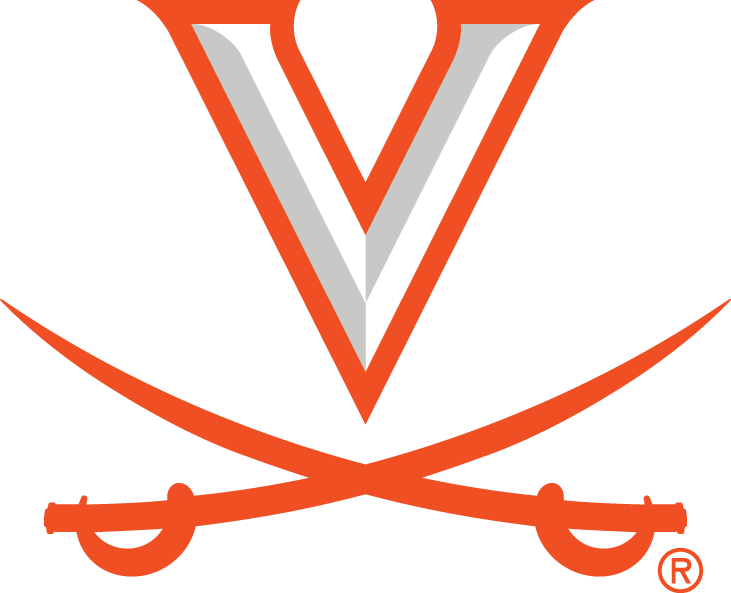By Jeff White (jwhite@virginia.edu)
VirginiaSports.com
CHARLOTTESVILLE, Va. — The coaches change, the roster turns over, but the identity of the Boston College football program remains constant. Year in, year out, BC fields big, strong teams that relish physical confrontations and love to run the ball.
“They take pride in smash-mouth football,” Virginia head coach Tony Elliott said Tuesday during his weekly press conference at the Hardie Center. “They lead with the run … Overall, they want to line up and come at you.”
This is the Eagles’ first season under head coach Bill O’Brien, an NFL veteran whose team visits Scott Stadium on Saturday. At noon, Virginia (3-1 overall, 1-0 ACC) meets Boston College (4-1, 1-0). The Cavaliers are coming off a game in which they rushed for 384 yards, and they’ll be looking to “go out there and try to impose our will” again Saturday, Elliott said.
“This will be a good test. It’s BC. That’s all I can say,” said Elliott, a former Clemson assistant. “For all the years that I’ve been in the ACC, we played Boston College every year. It didn’t matter what the record was. Didn’t matter. These dudes are going to show up and be hard-nosed guys. They are going to be confident, tough and going to try and punch you in the mouth.”
The challenge for the Wahoos is straightforward, Elliott said. “We’ve got to be ready to come out and attack and punch first. We’ve got to do it with the run game.”
Game 5️⃣ in our house 🏟️#UVAStrong | #GoHoos⚔️ pic.twitter.com/vmjJnHm6AA
— Virginia Football (@UVAFootball) September 30, 2024
The Hoos haven’t played since Sept. 21, when they defeated Coastal Carolina 43-24 in Conway, S.C. Two starting offensive linemen who missed the Coastal game—guard Ty Furnish and tackle McKale Boley—have been practicing this week and are expected to be available Saturday. Boley has yet to play this season.
“Pretty much everybody that we’re hoping to get back at this juncture is back,” Elliott said.
Not all the medical news has been positive for Virginia. Defensive tackle Jason Hammond and tight end Sage Ennis suffered season-ending injuries against Coastal.
Ennis is a graduate transfer from Clemson. Hammond is a sophomore who’d earned a starting job in his second season at UVA.
Hammond was “really starting to come into his own,” Elliott said. “Man, he was playing really good football for us. He was playing fast, physical, and was taking the primary load from a snap count lineup. But next man up, so guys got to step up.”
Virginia’s most experienced defensive tackle is fifth-year senior Jahmeer Carter. With Hammond out, senior Mike Diatta and sophomore Anthony Britton have “to carry a little bit more load,” Elliott said.
Two players who’ve been lining up at defensive end—Bryce Carter and Terrell Jones—can slide inside to tackle, Elliott said.
Hammond’s surgery went well and he’s “on the road to recovery,” Elliott said. “But he was playing some really good football for us, so it is a big hit for us. But next-man-up. That’s football, unfortunately.”
Britton, who starred at Lake Taylor High in Norfolk, came in with Hammond last year. “It was really rough seeing him [injured],” Britton said after practice Tuesday, “but at the same time he encouraged me to keep pushing.”
Hammond totaled 11 tackles in his four games. Britton has seven. Once Hammond went down, Britton said, “I was like, OK, so now I actually have to perform. It’s time to go on the field. There are no excuses.”
At 6-foot-3, 311 pounds, Britton is “a big man, and as he comes into his own he’s hard to move,” Elliott said. “Very powerful and good athleticism for a man that big. Now it’s a function of the game slowing down for him. Unfortunately, he’s going to have to take more snaps, so he is going to learn on the job, be baptized by fire.
I think he has a ton of upside. I’m excited about the additional reps he’s going to take.”
HOMESTAND: Only once this season will the Cavaliers play back-to-back games at Scott Stadium. A week after facing Boston College, UVA will host another ACC foe, Louisville.
“We need to be a football team that defends our home stadium,” Elliott said. “That’s really been the message and the motivation. If you want to be honest, we have not been good in Scott Stadium under this coaching staff. I want that to change. I believe the players want that to change. BC is not going to give it to us. We’ve got to go take it, even in our home stadium.”
The Hoos are 5-9 at Scott Stadium under Elliott.
TALE OF TWO HALVES: With a 27-24 loss last season in Chestnut Hill, Mass., Virginia fell to 1-7 all-time against Boston College.
UVA led 21-7 at halftime, but the Eagles rallied for 17 unanswered points before Will Bettridge’s 44-yard field goal made it 24-24 midway through the fourth quarter. BC answered with a drive that ended with a field goal, after which the Hoos turned the ball over on downs on what turned out to be their final possession.
Elliott said he hasn’t brought up that game much to his team as it prepares for BC’s visit.
“I know some of the other coaches may have pointed it out,” he said. “I think we all understand what happened in that game in the second half. They wanted it more than we did. They started leaning on us, and they went back to doing what they do and run the football and we didn’t accept the challenge.
“I think one of the bigger things to point out for us is we’re 1-7 as a program versus BC. So there is a lot of significance in this game from a pride standpoint.”
